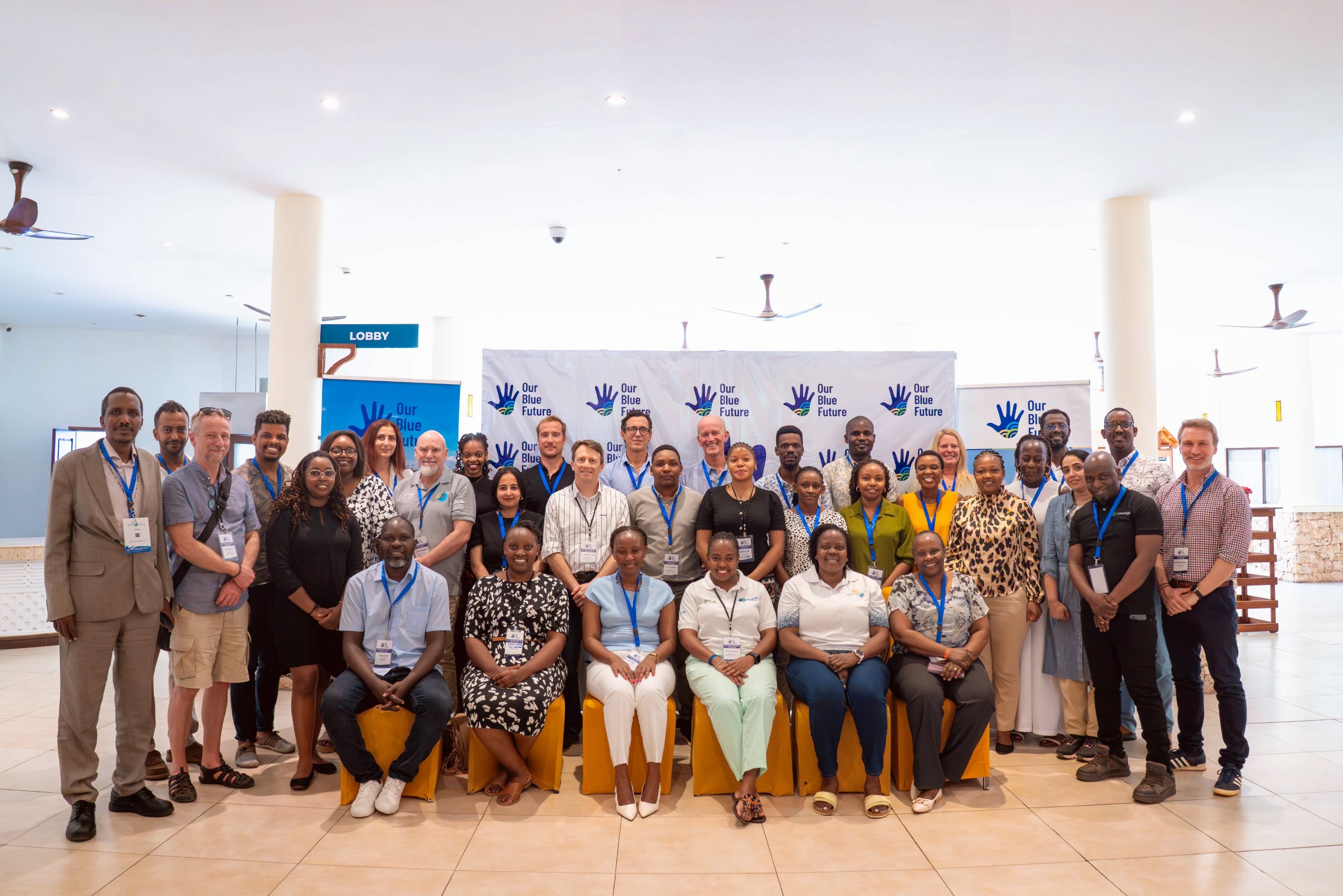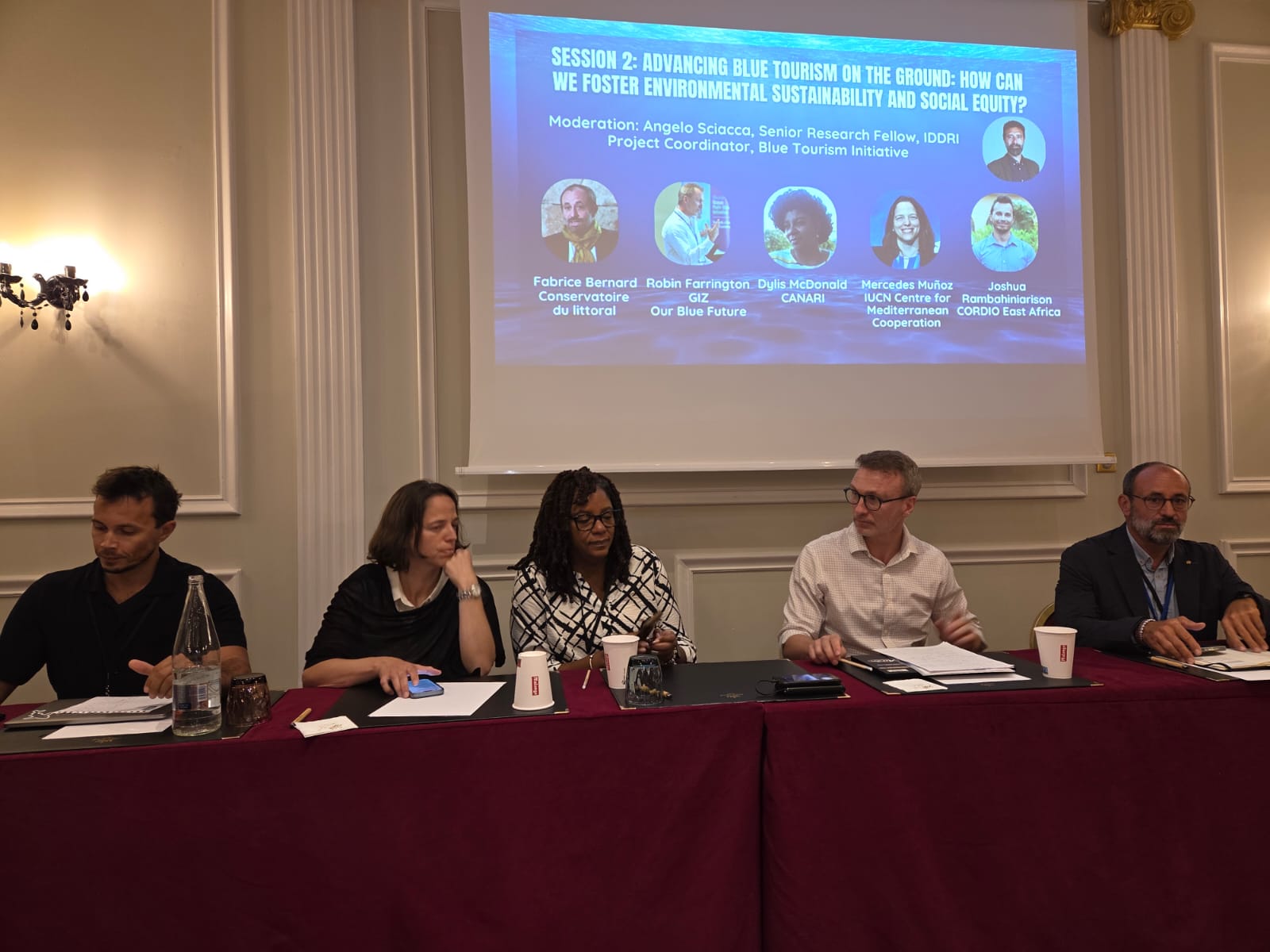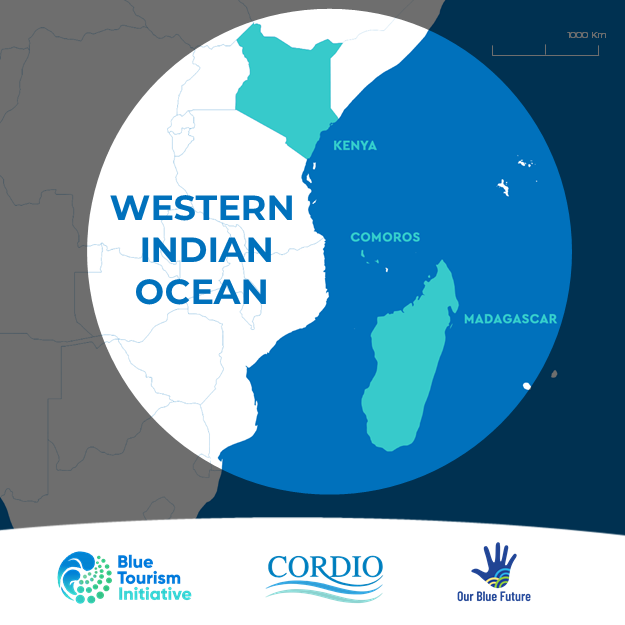The second Marine Regions Forum took place from 7th – 9th December 2023 hosted in the United Republic of Tanzania, in collaboration with the Republic of Seychelles. The forum was organized in partnership with the Nairobi Convention Secretariat and regional partners under the theme “Navigating Ocean Sustainability in the Western Indian Ocean and Beyond”. Our Blue Future was an active part of shaping the second strand of the forum focused on fostering a Sustainable Blue Economy with its session “Advancing private sector involvement in ocean sustainability and governance in the Western Indian Ocean”.
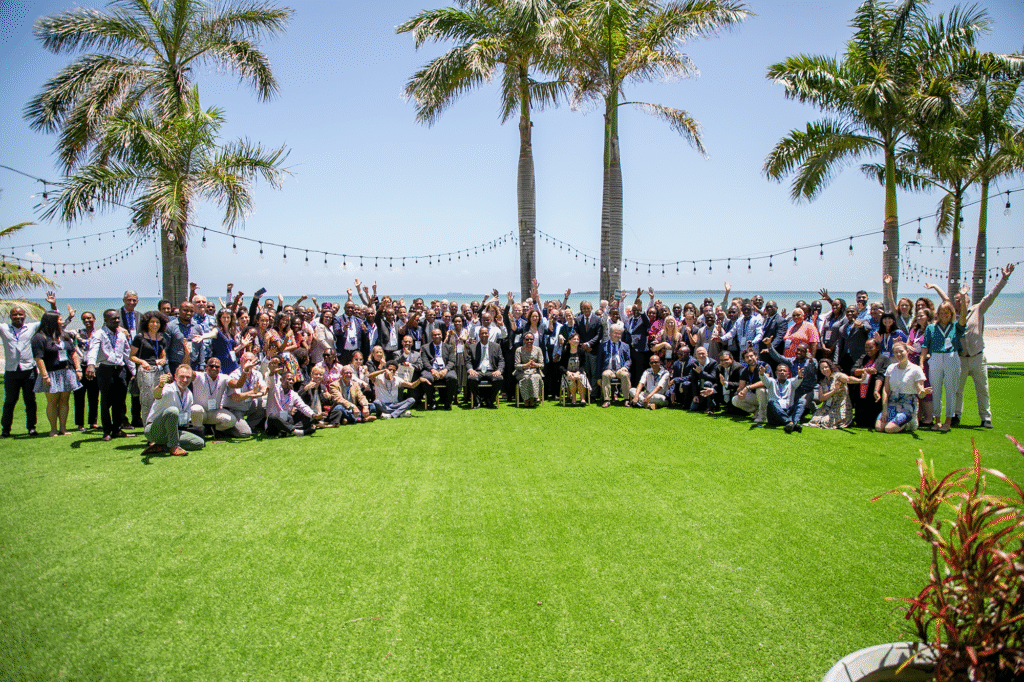
The 2023 Marine Regions Forum participants (Credits: MRF/Empower ltd)
The session highlighted the role of the private sector in advancing inclusive sustainable blue economy agendas in the WIO by understanding current business practices, identifying barriers to their effective contribution to improved ocean governance and innovative solutions to address these challenges. The private sector has a profound role in catalyzing and accelerating the transition to an inclusive sustainable blue economy. The pertinent focus of the session was how to make the contribution of the private sector more impactful and more importantly, what role the private sector can have in financing the transition to an inclusive and sustainable blue economy.
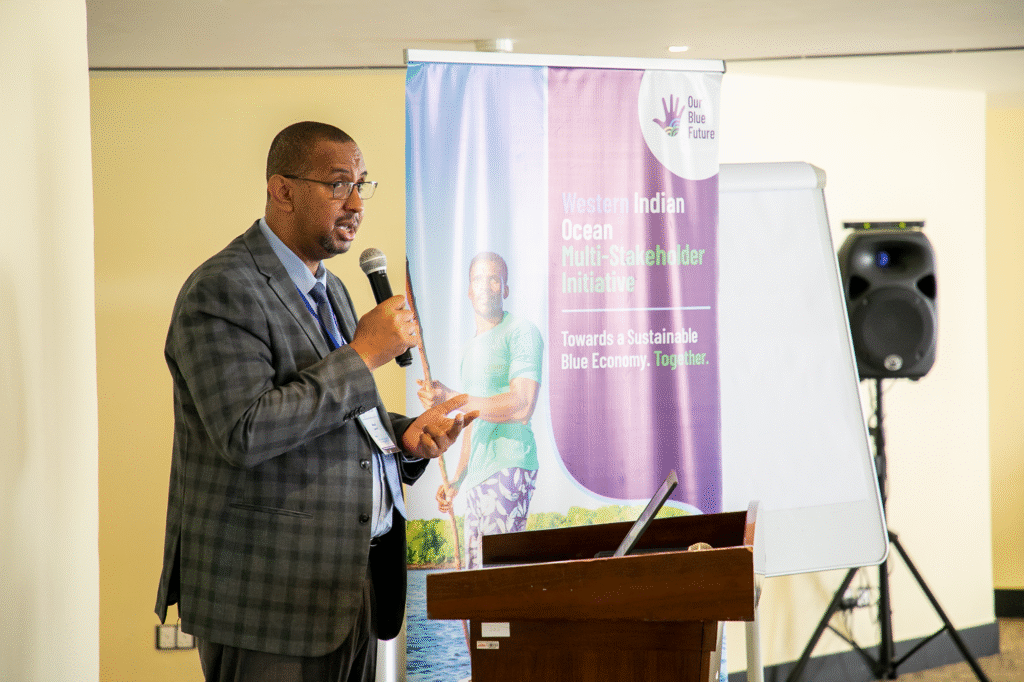
Dr Aboud Jumbe, Principal Secretary at the Ministry of Blue Economy and Fisheries, Zanzibar, Tanzania (Credits: MRF/Empower ltd)
Based on the inputs for the first session, it is evident that private sector-led Inclusive Sustainable Blue Economy (ISBE) solutions cover a broad spectrum of initiatives and sectors such as circular economy, financing especially for the small-scale to medium enterprises (SMEs), technology development among others. The private sector plays a crucial role in driving these diverse ISBE solutions, demonstrating a commitment to environmental sustainability and responsible business practices. As highlighted by Dr Aboud Jumbe, cooperation and collaboration among various stakeholders especially the private sector are crucial for the advancement of the blue economy. The private sector particularly plays a vital role in contributing knowledge and resources to drive participation in the blue economy.
The second part of the session discussions focused on how to make the private sector’s contribution more impactful when it comes to fostering ISBE. Proposed strategies included promoting Environmental, Social, and Governance (ESG) compliance as well as models of best practice, technical assistance packages, tax incentives, and compromises on the size of investments (especially from north to south). To ensure that private sector financing institutions integrate environmental considerations into their business operations and lending procedures, the proposed strategies include implementing sustainability principles, adopting Environmental, Social, and Governance (ESG) policies, employing reporting frameworks, utilizing scorecards, and aligning with the International Sustainability Standards Board (ISSB). In order for private sector financing institutions to align with and implement UNEP‘s sustainable finance principles, there should be documented and available best practice case studies, active engagement in bilateral discussions and advocacy for adoption as well as the establishment of an Information Technology platform dedicated to sustainable finance.
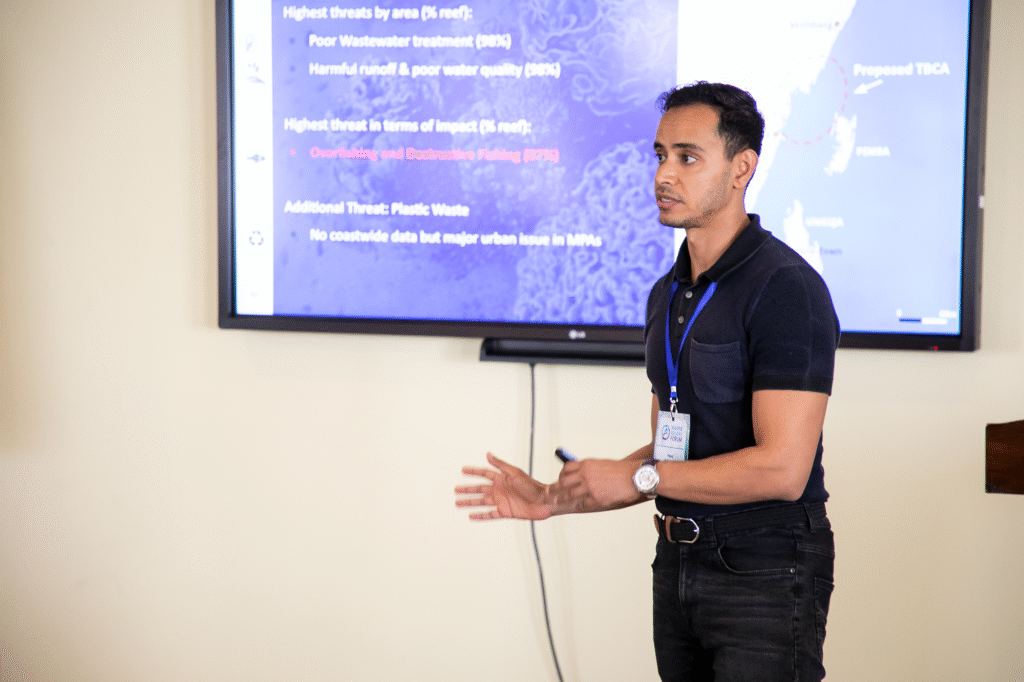
Dr Fahd Al-Guthmy, Programme Director – Conservation Finance Wildlife Conservation Society (Credits: MRF/Empower ltd)
The case of Chumbe Island Coral Park, presented by Sybille Riedmiller (Credits: Chumbe Coral Park)

